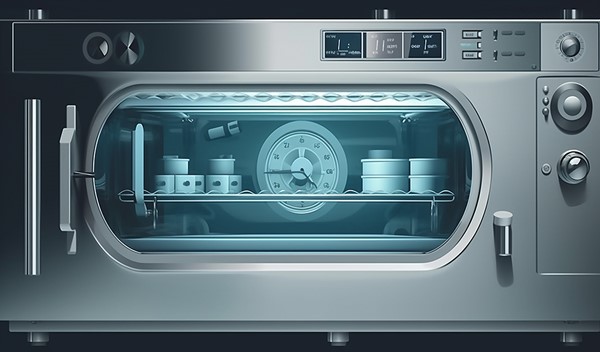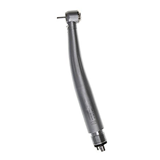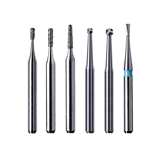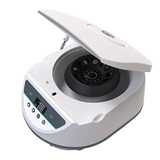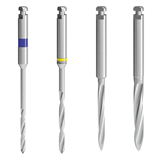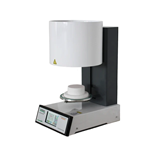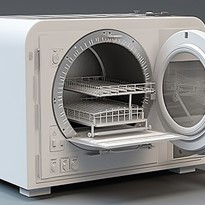As a leading provider of comprehensive dental solutions, we recognize the paramount importance of licensing and regulation in the field of dental autoclaves and benchtops. In this article, we will delve into the significance of adhering to licensing requirements and regulatory standards, emphasizing their role in ensuring compliance, safety, and optimal performance in dental practices.
The Significance of Licensing and Regulation
Licensing and regulation in the realm of dental autoclaves and benchtops are crucial aspects that cannot be overlooked. They serve as the foundation for maintaining high standards of quality, safety, and professionalism in dental practices. Here, we highlight the key reasons why licensing and regulation matter:
- Compliance with Legal Requirements: Licensing is a legal mandate imposed by regulatory authorities to ensure that dental professionals meet specific qualifications and standards. By obtaining the necessary licenses, dental practitioners demonstrate their commitment to upholding legal obligations and delivering quality care to patients.
- Ensuring Safety and Patient Well-being: Regulatory standards for dental autoclaves and benchtops are designed to safeguard patient safety and well-being. These standards encompass various aspects such as sterilization protocols, equipment maintenance, and infection control measures. Adhering to these regulations minimizes the risk of cross-contamination and the spread of infectious diseases, creating a safe environment for both dental professionals and patients.
- Quality Assurance and Professionalism: Licensing and regulation play a vital role in upholding the integrity of the dental profession. By adhering to licensing requirements and regulatory standards, dental practices demonstrate their commitment to delivering high-quality services and maintaining a professional reputation. Compliance with these standards enhances patient trust and confidence in the dental provider.


Find the right Dental Autoclave
Compare quotes from expert Australian suppliers and make the best choice. It's free, quick and easy!
Understanding Licensing Requirements
To ensure compliance with licensing requirements, dental professionals and practices must familiarize themselves with the specific regulations set forth by relevant authorities. Licensing requirements may vary across jurisdictions, but they typically involve the following aspects:
- Educational Qualifications: Dental practitioners must possess the appropriate educational qualifications from recognized institutions. These qualifications validate their knowledge and competence in handling dental autoclaves and benchtops safely and effectively.
- Technical Competence and Training: Dental professionals should undergo specialized training to acquire the necessary technical skills in operating dental autoclaves and maintaining benchtops. This training ensures that they possess the expertise to handle these crucial instruments correctly.
- Facility Inspections: Regulatory authorities often conduct inspections to assess the compliance of dental practices with licensing requirements. These inspections involve evaluating the condition and functionality of autoclaves, verifying the implementation of infection control protocols, and assessing the overall safety and hygiene standards of the practice.
- Documentation and Record-Keeping: Maintaining accurate documentation and records is an integral part of licensing compliance. Dental practices must keep records of autoclave maintenance, sterilization processes, calibration, and equipment repairs. These records serve as evidence of adherence to regulatory standards and can be requested during inspections or audits.
Adhering to Regulatory Standards for Dental Autoclaves and Benchtops
In addition to licensing requirements, dental autoclaves and benchtops must also meet specific regulatory standards to ensure optimal performance and safety. Some key regulatory standards to consider include:
- Sterilization Guidelines: Regulatory bodies provide guidelines for the proper sterilization of dental instruments using autoclaves. These guidelines outline the recommended sterilization cycles, temperature and pressure parameters, and the necessary documentation to validate the effectiveness of the sterilization process.
- Infection Control Protocols: Dental practices must follow established infection control protocols to prevent the transmission of infectious diseases. These protocols encompass proper handling and disposal of contaminated materials, and regular disinfection of surfaces.
Protecting Public Health: Licensing and Regulation of Dental Autoclaves and Benchtops
As a leading provider of comprehensive dental solutions, we recognize the critical role that licensing and regulation play in ensuring public health and safety in the realm of dental autoclaves and benchtops. In this article, we will delve into the significance of licensing and regulatory compliance, highlighting their impact on infection control, equipment performance, and overall quality of care in dental practices.
Licensing: A Commitment to Excellence
Obtaining the necessary licenses is not just a legal requirement, but a testament to a dental practice's commitment to excellence and professionalism. Licensing serves as an assurance that dental professionals meet specific qualifications, possess the requisite skills, and adhere to rigorous standards set by regulatory bodies. By fulfilling licensing requirements, dental practitioners demonstrate their dedication to providing safe and effective care to patients.
Regulatory Compliance: Ensuring Safety and Quality
Regulatory compliance is a vital component of maintaining the highest standards of safety, hygiene, and quality in dental practices. When it comes to dental autoclaves and benchtops, adherence to regulatory standards is crucial for the following reasons:
- Infection Control Measures: Regulatory standards mandate strict infection control measures to prevent the transmission of diseases in dental settings. These measures include proper sterilization of instruments, disinfection of surfaces, and the implementation of effective infection control protocols. By complying with these standards, dental practices mitigate the risk of cross-contamination and safeguard the health of patients and staff.
- Equipment Performance and Maintenance: Regulatory guidelines outline requirements for the performance, calibration, and maintenance of dental autoclaves and benchtops. Regular equipment inspections and adherence to maintenance schedules ensure that these essential tools operate optimally, minimizing the likelihood of equipment failure and ensuring consistent sterilization efficacy.
- Record-Keeping and Documentation: Regulatory compliance necessitates thorough record-keeping and documentation practices. Dental practices are required to maintain comprehensive records of sterilization cycles, equipment maintenance, calibration, and staff training. These records not only demonstrate compliance but also serve as a valuable resource for monitoring and improving sterilization processes over time.


Find the right Dental Autoclave
Compare quotes from expert Australian suppliers and make the best choice. It's free, quick and easy!
The Role of Licensing and Regulation in Infection Control
Infection control is a primary concern in dental settings, and licensing and regulation play a pivotal role in ensuring its effectiveness. Here's how licensing and regulation contribute to infection control:
- Sterilization Standards and Protocols: Regulatory bodies establish specific sterilization standards and protocols for dental autoclaves. These guidelines outline the appropriate temperature, pressure, and exposure times required for effective sterilization. Compliance with these standards ensures that dental instruments are free from pathogens, protecting patients from potential infections.
- Validation and Monitoring of Sterilization Processes: Regulatory compliance involves validating and monitoring sterilization processes to ensure their efficacy. This includes routine testing of autoclave performance, such as biological and chemical indicators, to verify the kill effectiveness of the sterilization cycle. Regular monitoring helps identify any deviations or issues that may compromise the sterilization process.
- Training and Education: Licensing requirements often include mandatory training and education on infection control practices. Dental professionals undergo comprehensive training to understand proper sterilization techniques, handling of contaminated materials, and maintaining a clean and safe environment. This training equips them with the necessary knowledge and skills to implement effective infection control measures.
Infection Control and Sterilization Protocols for Dental Autoclaves and Benchtops
Infection control and sterilization protocols are essential in dental settings to prevent the transmission of infectious diseases and maintain a safe environment for patients and staff. Dental autoclaves and benchtops play a crucial role in the sterilization of instruments and surfaces. Here are some guidelines for infection control and sterilization protocols for dental autoclaves and benchtops:
Autoclave Maintenance:
- Follow the manufacturer's instructions for the proper use and maintenance of the autoclave.
- Regularly inspect the autoclave for any signs of wear, damage, or malfunctioning components.
- Perform routine maintenance and calibration of the autoclave as recommended by the manufacturer.
- Keep a log of maintenance activities, including dates and details of any repairs or servicing.
Instrument Preparation:
- Ensure that all instruments are thoroughly cleaned and decontaminated before sterilization. Use an appropriate cleaning solution and mechanical or ultrasonic cleaning devices.
- Inspect instruments for any damage or wear and separate any damaged instruments for repair or disposal.
- Follow the instrument manufacturer's instructions for proper packaging and loading in sterilization pouches or trays.
- Use appropriate indicators such as chemical or biological indicators to monitor the effectiveness of the sterilization process.
Autoclave Operation:
- Familiarize yourself with the autoclave's operating instructions and parameters, including time, temperature, and pressure settings.
- Load instruments in a manner that allows proper steam circulation and penetration during the sterilization process.
- Place chemical and biological indicators inside the autoclave to monitor and verify the effectiveness of the sterilization cycle.
- Close and seal the autoclave door securely before initiating the sterilization cycle.
- Monitor and record the autoclave cycle parameters for each load, including temperature, pressure, and cycle duration.
Autoclave Maintenance:
- After each sterilization cycle, allow the autoclave to cool down before opening the door.
- Inspect sterilized instruments for any signs of moisture, condensation, or damage. Remove and reprocess any items that appear compromised.
- Clean the autoclave chamber and trays regularly using a recommended disinfectant or cleaning solution.
- Keep a log of autoclave cycles, including date, load contents, cycle parameters, and results of chemical and biological indicators.
Benchtop Disinfection:
- Clean and disinfect all benchtops, countertops, and surfaces regularly using appropriate disinfectants recommended for dental settings.
- Pay special attention to high-touch areas such as light handles, switches, drawer handles, and faucet handles.
- Use disposable barriers or impervious surface covers where applicable to facilitate cleaning and disinfection.
- Ensure proper ventilation in the dental operatory to minimize the risk of airborne contaminants.
Personal Protective Equipment (PPE):
- Use appropriate PPE, including gloves, masks, protective eyewear, and gowns, during instrument handling, cleaning, and sterilization processes.
- Follow proper protocols for donning and doffing PPE to minimize the risk of contamination.
Remember to consult and adhere to the guidelines and regulations provided by your local health authorities, dental professional associations, and the manufacturer's instructions for specific autoclaves and disinfectants used in your dental practice.
In conclusion, licensing and regulation are fundamental in maintaining compliance, safety, and optimal performance in dental autoclaves and benchtops. They ensure that dental professionals meet specific qualifications, adhere to legal requirements, and deliver high-quality care to patients. Regulatory standards for sterilization, infection control, and equipment maintenance are crucial for safeguarding patient well-being and preventing the spread of infectious diseases. By adhering to licensing requirements and regulatory standards, dental practices demonstrate their commitment to professionalism and create a safe environment that inspires trust and confidence in both patients and the dental community.
